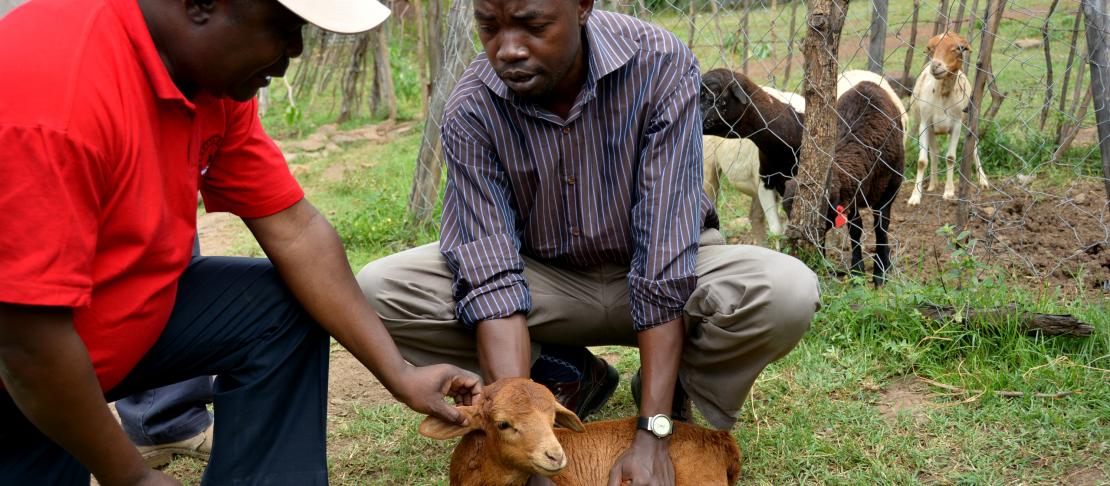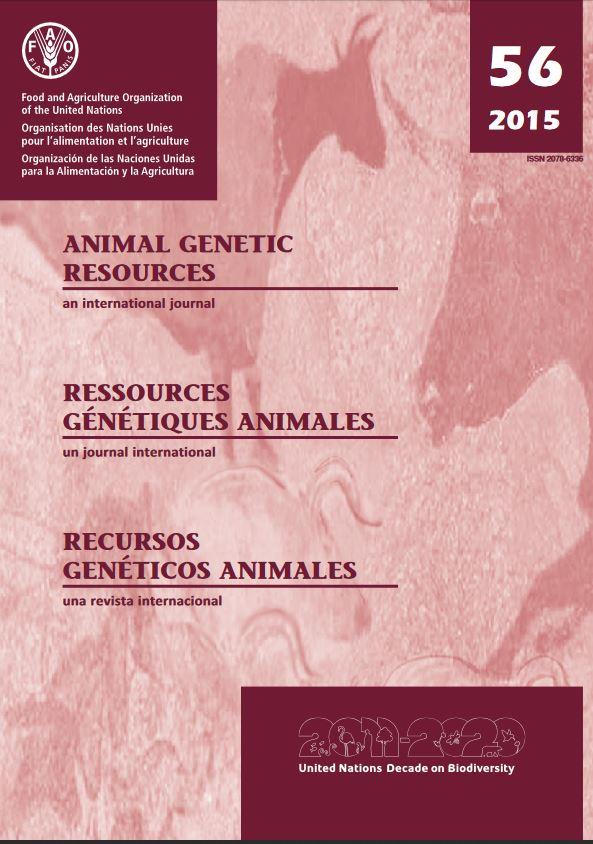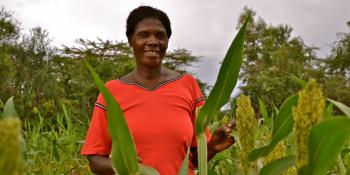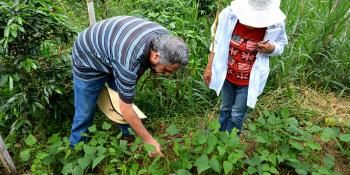Improving the productivity of small livestock under a changing climate

Community breeding programme, alongside strong community capacity development on animal husbandry, health and marketing of products key for improving productivity of goats and sheep among farmers, study finds.
Small ruminants, mainly goats and sheep, can play a key role in helping farming communities adapt to and mitigate the effects of climate change. In Nyando, western Kenya where resilient cross breeds of these animals better adapted to changing feed and water conditions are being kept since 2014, the local community is already reporting additional income, with a positive impact on household food security.
‘Small ruminants are a route to better livelihoods in East Africa’, says Julie Ojango, an animal breeding scientist at the International Livestock Research Institute (ILRI). ‘Apart from poultry, goats and sheep are the only “livestock assets” over which women and youth tend to have control. They are also less labor intensive.
Sustaining the change being witnessed in Nyando, however, requires continually improving the productivity of goats and sheep under small holder farming systems.
A new journal paper 'system characteristics and management practices for small ruminant production in “Climate Smart Villages” of Kenya' helps us better understand the context in which small ruminants (SR) are kept.

In turn, this will help smallholder systems better respond to the changing social, economic and environmental conditions in which they operate. The paper outlines the characteristics of the SR production environment, and the flock structures and dynamics at the household level within the CGIAR Research Program on Climate Change, Agriculture and Food Security (CCAFS) East Africa climate-smart villages (CSVs) of Nyando in Western Kenya. The aim is to determine best-bet options for sustainable SR improvement in the villages. Furthermore, the provides an insight to the importance of SR under smallholder farming conditions, where livestock keepers have very limited resources and are faced with the challenge of changing climatic conditions.
This study was conducted by researchers based at ILRI, who are already working closely with Nyando farmers.
Household structure and gender
A sizable proportion of young people were found within the CSVs of Nyando. These people could positively influence the productivity of SR. An earlier study on breeding practices in dairy goat populations found that having a high proportion of farmers being elderly may negatively impact breed improvement practices. In terms of gender, most women kept sheep while the men kept goats. In the local market, goats fetched a higher price compared to the sheep.
Resource endowment
Nyando households have limited land greatly impacting the flock sizes and structure as well as sustainable herd productivity. Due to limited land and a very short growing season, animals were fed crop residues. This led to poor quality feed or under feeding limiting maturity and productivity of the animals.
Trait preferences and flock dynamics
Size and body conditions were the most important traits to Nyando farmers. Unfortunately, the goats and sheep in the area had very slow growth rates. Mature animals were also small sized. Mortality was also of concern to the farmers.
Breeding and improvement programmes
The CSV provides a good platform for developing an optimized community breeding programme for SRs. Formation of farmer groups, provision of breeding stock, extension and animal health services and training could serve as an incentive for farmers to participate in the programme.
Key messages
- In vulnerable communities affected by climate change, such as the one in Nyando, SRs can play an important role in both adapting to climate change and mitigating the effects of climate change on livelihoods of affected communities.
- A community breeding programme geared towards the optimal use of available resources and incorporating gender-integrated innovative technologies can be developed using indigenous breeds.
- Economic breeding objectives however need to be developed for the area; complementary to this, the SR product market value chain should grow.
- Capacity development is however required to improve husbandry and to sensitize farmers on cooperation in decision making on the improvement and progress of their flocks.
Download the paper:
Ojango JMK, Audho J, Oyieng E, Recha J, Okeyo AM, Kinyangi JM, Muigai AWT. 2016. System characteristics and management practices for small ruminant production in “Climate Smart Villages” of Kenya. Animal Genetic Resources 1-10.
Related CCAFS working paper:
Ojango JMK, Audho J, Oyieng E, Recha J, Muigai A. 2015. Sustainable small ruminant breeding program for climate- smart villages in Kenya: Baseline household survey report. CCAFS Working Paper no. 127. Copenhagen, Denmark: CGIAR Research Program on Climate Change, Agriculture and Food Security (CCAFS).



